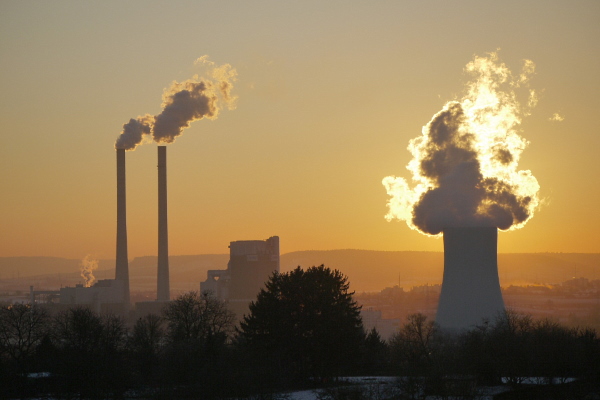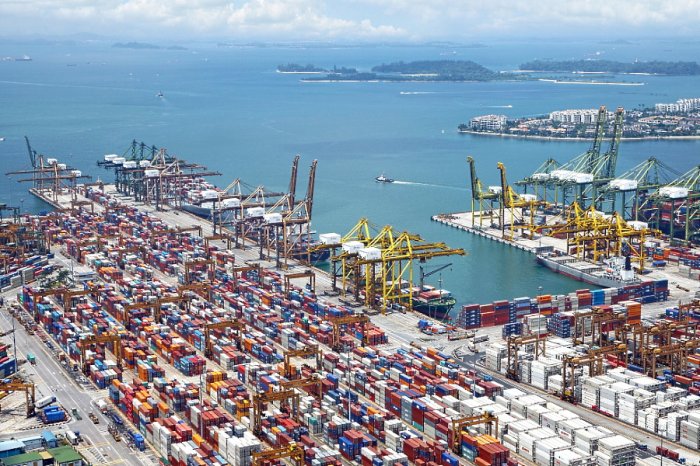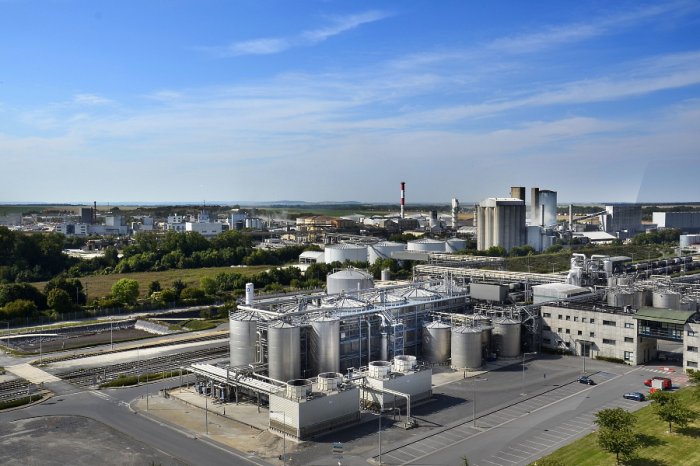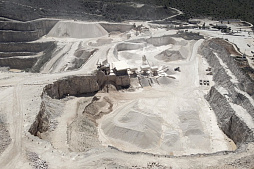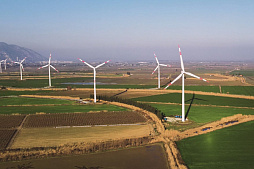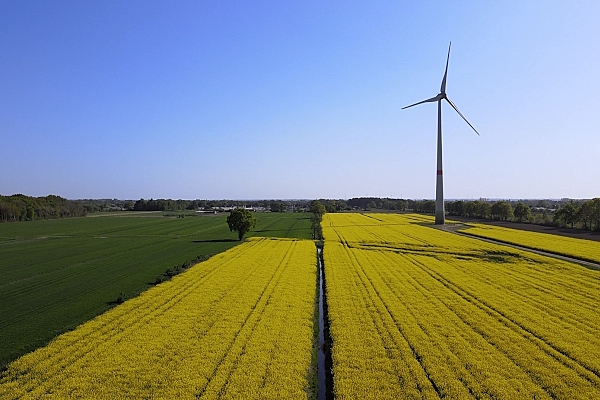After receiving the necessary documents and project presentation, our team will try to review your request as soon as possible, and leading experts will offer the best options for project funding.
With a dedication to change and a clear focus on growing tech sectors, the country provides an appealing arena for investments. In 2022, Uzbekistan took 8th place according to the “Starting Business” criterion in the international Doing Business ranking.
We explore the opportunities available for doing businesses in Uzbekistan, examining important sectors, regulatory environment, and the dynamic economic landscape that awaits those ready to contribute to the nation's progress.
If you are looking for flexible tools to finance large projects in Uzbekistan, contact the GCAM Investment Group team.
Economy of Uzbekistan: brief overview
Uzbekistan, rapidly growing economy at the crossroads of Central Asia, has emerged as a compelling destination for global investors. The country's strategic location, coupled with a series of reforms, has created a conducive environment for large businesses seeking new opportunities.Stability and sustainable economic growth
Uzbekistan maintained steady economic growth, with a GDP growth rate of about 5.5% in 2022.The stability of the local economy has been a cornerstone, supported by rational fiscal policies.
Meanwhile, the government has announced plans to double GDP in the next decade. This ambitious plan can indeed be realized, given the unique position that this Central Asian republic has occupied at the crossroads between the global East and West. Over the next 5 years, the authorities of Uzbekistan plan to attract about $120 billion of investment from all over the world.
Inflation rates remained low, with an average of around 11.4% in 2022.
In recent years the Uzbekistani Soum (UZS) demonstrated resilience, maintaining stability against major currencies. Central Bank interventions and government efforts to manage inflation have also contributed to a stable economic environment and maintaining good investment climate.
The government debt-to-GDP ratio is also relatively low, around 30%. Uzbekistan's foreign reserves remained robust, providing a buffer against external economic shocks. Sound monetary policies and a favorable trade balance contributed to the accumulation of foreign reserves.
The country's trade balance remained positive, driven by exports of natural resources, textiles, and agricultural products. Trade partnerships with China, Russia and major neighboring countries and international markets played a key role in sustaining a balance.
The services sector continued to be large contributor to GDP, followed by industry and agriculture. Efforts to diversify post-Soviet economy showcased a growing emphasis on innovation. Significant investments were made in infrastructure, particularly in transportation and urban development.
Foreign direct investment on the rise
It's noteworthy that the government maintains a proactive role in guiding capital flows in major industries.The emphasis is on steering investments toward a preapproved list, primarily consisting of export-oriented projects. A manifestation of this approach is evident in the National Investment Program for 2023-2025. This strategic roadmap outlines more than seven hundred projects totaling $55 billion, indicative of the government's intentional direction for economic development.
Uzbekistan saw a notable increase in Foreign Direct Investment (FDI), reaching $1.5 billion in 2021, reflecting growing investor confidence. Pro-investment policies and efforts to improve the business climate have definitely created the basis for this positive trend.
The World Bank's recommendations for national FDI strategy and roadmap for Uzbekistan suggests that investments in import-intensive projects may encounter limited support.
This nuanced approach reflects current government's focus on projects aligned with national development goals.
To facilitate the seamless registration of investment projects, the Ministry of Investment, Industry, and Trade of the Republic of Uzbekistan plays an important role. The Ministry's platform serves as a hub for project registration, streamlining the initial stages of investment implementation.
Foreign investors can also benefit from the services offered by the Investments Promotion Agency. This agency provides a spectrum of services, including consulting, analysis, business registration, and legal assistance. Similarly, the Chamber of Commerce and Industry of Uzbekistan offers contractual services to support foreign investors in navigating the local business landscape.
Investment climate and opportunities in Uzbekistan
Uzbekistan stands as an attractive destination for large foreign investors, backed by a welcoming regulatory framework.The government ensures that foreign investors are not discriminated against based on place of residence or country of origin. The stable growth of foreign investment, which did not stop even against the backdrop of the pandemic and geopolitical upheavals in neighboring regions, clearly demonstrates the success of the policy being pursued.
Sectors attractive to investors in Uzbekistan
Uzbekistan's diversified economy presents a spectrum of investment opportunities across key sectors. From energy to technology, agriculture to urban development, the country's strategic initiatives, supported by the National Investment Program, create a fertile ground for investors.Main sectors attracting investors to the economy of Uzbekistan:
• Energy and other natural resources. Uzbekistan possesses abundant natural resources, including natural gas and minerals. Exploration and extraction projects in the energy sector focuses on RES initiatives. The National Investment Program 2023-2025 allocates substantial resources for energy projects, reflecting the sector's strategic importance.
• Agriculture and agribusiness. Uzbekistan boasts fertile land and a rich agricultural heritage, making it a key player in cotton and other agricultural products. Investment opportunities include agribusiness ventures, modernization of irrigation systems, and introduction of advanced farming technologies.
• Manufacturing and industry. The manufacturing sector is a significant contributor to Uzbekistan's GDP, with a focus on textiles, automotive, and machinery. Main investment Opportunities include expansion of manufacturing facilities, introduction of advanced technologies, and development of export-oriented industries. GM Uzbekistan, a joint venture with General Motors, is a prominent player in the automotive sector.
• Technology and innovation. Uzbekistan is rapidly advancing in the technology sector, with a focus on digital transformation and innovation. Investments in IT infrastructure are on the rise, with a growing support for start-ups and development of technology parks. For example, innovative IT Park in Tashkent attracts global technology companies.
• Transportation and logistics. Uzbekistan's strategic location makes it an important transit hub in Central Asia. Expansion and modernization of transportation networks, development of logistics infrastructure. Uzbek Railways, the national railway company, plays a crucial role in the transportation sector. The National Program allocates large funds for logistics and transportation projects, aligning with the government's vision for enhanced connectivity.
• Urban development and real estate. The government is involved in urban development initiatives, aiming for sustainable cities. Real estate development, smart city projects, and infrastructure for urbanization. Tashkent City, a capital-intensive urban development project, showcases the commitment to modernizing cities. Investors can capitalize on opportunities arising from the government's focus on creating livable and sustainable urban spaces.
With global brands already making their mark, Uzbekistan emerges as a promising destination for those seeking long-term returns in dynamic and evolving economy sectors.
Regulatory policy of Uzbekistan related to investments
Uzbekistan is actively reforming its regulatory policies to create a more favorable environment for investments. Below are some data related to reforming the regulatory environment.If you would like to receive professional legal advice on doing business and financing investment projects in Uzbekistan, contact our team for details.
1. Legal framework
Uzbekistan has enacted a number of important laws to govern foreign investments, including the Law on Investments and Investment Activities. These laws provide the legal basis for investment activities, protection of investor rights, and dispute resolution.2. Non-discrimination principle
The government has a policy of non-discrimination against foreign investors based on nationality, place of residence, or country of origin. This main principle is designed to ensure equal treatment for both domestic and foreign investors.3. Foreign exchange regulation
Uzbekistan has taken huge steps to liberalize its foreign exchange regulations, making it easier for investors to convert and repatriate profits. This enhances the liquidity of investments and reduces currency-related risks.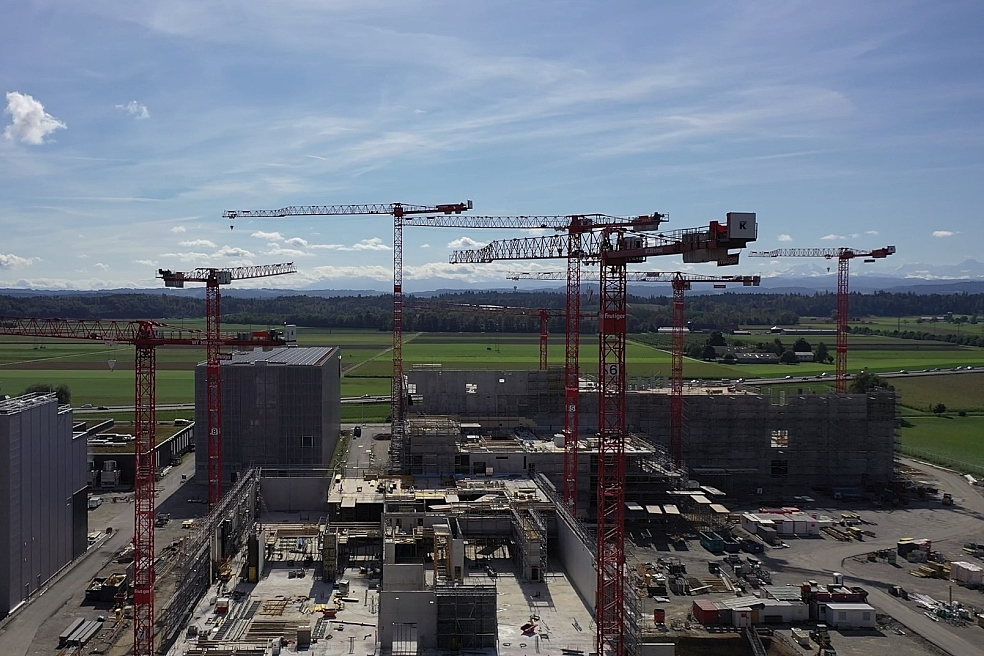
4. Investment incentives
The government offers various incentives to attract investments, including tax breaks, customs privileges, and other financial benefits. These incentives are designed to make investments more attractive and competitive, particularly in specific sectors.5. Sector-specific policies
Uzbekistan has sector-specific policies to encourage investments in key industries, such as energy, agriculture, manufacturing, and technology. These policies aim to strategically develop and diversify the economy by focusing on targeted sectors.6. Investment promotion agencies
Government bodies and agencies like the Ministry of Investment, Industry, and Trade and the Investments Promotion Agency actively promote investments across the country. These agencies provide information and assistance to investors, helping them navigate the regulatory landscape.7. Public-Private Partnerships (PPPs)
The government encourages PPPs as a means of promoting private investment in public projects. This collaborative approach facilitates the development of infrastructure and public services.8. Dispute resolution mechanisms
Uzbekistan has established clear legal mechanisms for the resolution of investment-related disputes. This provides a strict framework for addressing conflicts and disputes that may arise between foreign investors and the government.9. Transparency and anti-corruption measures
The government has expressed a commitment to transparency and has implemented fairly effective anti-corruption measures. These long efforts aim to create a business environment characterized by fairness, predictability, and integrity.10. One-stop shops
Uzbekistan has introduced one-stop shops to simplify administrative processes for investors. This initiative aims to streamline registration, permits, and other procedures, reducing bureaucracy.11. Customs and tariff policies
The government has implemented customs and tariff policies to facilitate trade and investment. These policies aim to reduce barriers to entry and promote international trade.Uzbekistan's regulatory policies are evolving to attract and facilitate investments. The commitment to creating an investor-friendly environment, coupled with very effective sector-specific incentives, reflects a strategic approach to economic development and attracting foreign capital.
Advantages of Uzbekistan's labor market
The labor market of Uzbekistan has witnessed positive trends, with unemployment rates in 2023 hovering around 7%.The country can offer foreign companies low-cost labor, which has a positive effect on competitiveness in key industries. Numerous government initiatives are currently focused on job creation and skill development to bolster the workforce.
Uzbekistan can be proud of a fairly good system of higher and professional education, which the republic inherited from the USSR and has been improved over the past years. Annual spending on education in Uzbekistan in the 21st century has typically been at least 10% of GDP, exceeding UNESCO standards. The country has a high quality of technical education and many qualified young people who can help foreign companies develop their business in Central Asia.
In a forward-looking move, the Government of Uzbekistan has extended additional privileges to foreign investors, particularly in the IT sector. The year 2022 witnessed the introduction of a set of incentives, including reduced taxes and the issuance of IT-Visas. These visas come with simplified extension and residence permit options, creating a favorable environment for skilled professionals.
For those delving into the burgeoning information technology, IT Park is a dedicated platform offering specialized services.
From business registration to comprehensive support, the IT Park caters to the specific needs of investors in this rapidly growing industry.
Uzbekistan's commitment to open and inclusive investment environment is evident through its legal measures, sector-specific incentives, and streamlined registration processes. As the rapidly growing economy strategically steers investments to align with its developmental goals, foreign investors find themselves navigating a landscape that balances openness with strategic priorities.
Industrial zones and clusters in Uzbekistan
Uzbekistan is actively working on creating new industrial zones to attract investment and diversify its economy.The government's commitment to economic reforms includes initiatives to enhance the infrastructure, regulatory environment, and incentives for businesses operating within these zones.
Industrial zones in the country operate on the basis of the Law of the Republic of Uzbekistan on Special Economic Zones. This law and related regulations established the procedure for creating, extending the period of operation and liquidation of SEZs, changing their boundaries, revised management system, as well as procedures for registering their participants.
Geography of special economic zones
According to information from the Ministry of Investment, Industry and Trade, the number of special economic zones in Uzbekistan is currently 24, with 23 of them being industrial zones. Over the past 15 years, enterprises within the special zones have implemented more than 600 projects, many of which were brought to life thanks to foreign investment.Table: General description of industrial zones and clusters in Uzbekistan
| Economic zones | Location | Focus | Incentives |
| Navoi Free Industrial Economic Zone (Navoi FIEZ) | Navoi region | Export-oriented industries, including manufacturing and logistics | Tax benefits, customs privileges, and streamlined administrative procedures to attract foreign investors |
| Angren Special Industrial Zone | Tashkent region | Development of diverse industries, including automotive, pharmaceuticals, and construction materials | Favorable conditions for investors, infrastructure support, and simplified administrative processes |
| Jizzakh Automotive Cluster | Jizzakh region | Automotive manufacturing and related industries | Specialized support for automotive businesses, aiming to attract both local and international investment |
| Kokand Industrial Zone | Fergana Valley | Diversified industrial activities, with an emphasis on textiles and light industry | Infrastructure development and support for industries aligned with the region's strengths |
| Tashkent City | Tashkent | Urban development and creation of a modern business hub | The project aims to attract businesses in finance, technology, and other sectors, with a focus on creating a vibrant and innovative urban environment |
| Termez Free Economic Zone (Termez FEZ) | Surkhandarya region | Encouraging cross-border trade and economic activities | Special customs and tax privileges to promote trade and investment in the region |
| Namangan Free Economic Zone | Namangan region | Promoting textile and light industry, as well as intensive agriculture | Aimed at attracting investment and fostering economic development in the region |
Our team is ready to provide a full range of financial services for large businesses in Uzbekistan and other regions of Central Asia.
If you are planning the development of a new investment project in one of the listed SEZs and need long-term financing, contact our specialists for advice.

Top-10 advantages of industrial zones in Uzbekistan
Utilizing industrial zones and clusters in Uzbekistan provides several advantages for businesses and investors, contributing to the overall economic development and fostering a conducive environment for industrial activities. Top-10 investment advantages of industrial zones are listed below.1. Infrastructure support
Large industrial zones are developed with robust infrastructure, including transportation networks, utilities, and communication facilities. This ensures that businesses within these zones have access to essential resources, reducing operational challenges and costs.2. Streamlined regulatory processes
Special economic zones in Uzbekistan usually come with simplified administrative procedures and regulatory frameworks. This minimizes bureaucratic hurdles, expediting business setup, permitting, and other regulatory processes for foreign investors.3. Tax incentives and customs privileges
Industrial zones typically offer tax breaks, reduced customs duties, and other financial incentives. This attracts investors by improving cost-effectiveness and increasing the overall competitiveness of businesses operating within the zones.4. Focused sector development
Industrial zones often have a specific industry focus (for example, production of automobiles and parts), creating clusters of related businesses. This fosters collaboration, knowledge sharing, and economies of scale, driving innovation and competitiveness in those sectors.5. Job creation and skill development
Industrial zones contribute to local economic development of certain regions (called viloyats in Uzbekistan) by generating employment opportunities. This, in turn, leads to skill development, improved livelihoods, and a positive impact on the surrounding communities.6. Foreign direct investment attraction
The presence of industrial zones with favorable conditions attracts serious foreign investors. It encourages international companies to set up operations in Uzbekistan, bringing in foreign direct investment, expertise, and technology transfer.7. Regional economic balancing
Industrial zones can be strategically located to promote economic development in specific regions. This helps balance economic disparities across regions, promoting inclusivity and regional growth.8. Innovation and research collaboration
Clusters within industrial zones encourage collaboration among businesses, research institutions, and academia. This promotes innovation, research, and development, creating a dynamic ecosystem that supports the growth of technology-driven industries.9. Export-oriented growth
Industrial zones often focus on export-oriented industries, contributing to the country's international trade. This enhances Uzbekistan's global integration / competitiveness in the international market.10. Government support and stability
Industrial zones receive strong government support, ensuring stability and a conducive business environment. This strengthens investor confidence, attracting both local and foreign businesses to invest and operate within the designated areas.Utilizing industrial zones and clusters in Uzbekistan is a strategic approach to attract investment, fuel economic growth, and enhance the overall competitiveness of specific industries.
The combination of infrastructure support, regulatory incentives, and collaborative environments positions these zones as key drivers of economic growth in the country.





